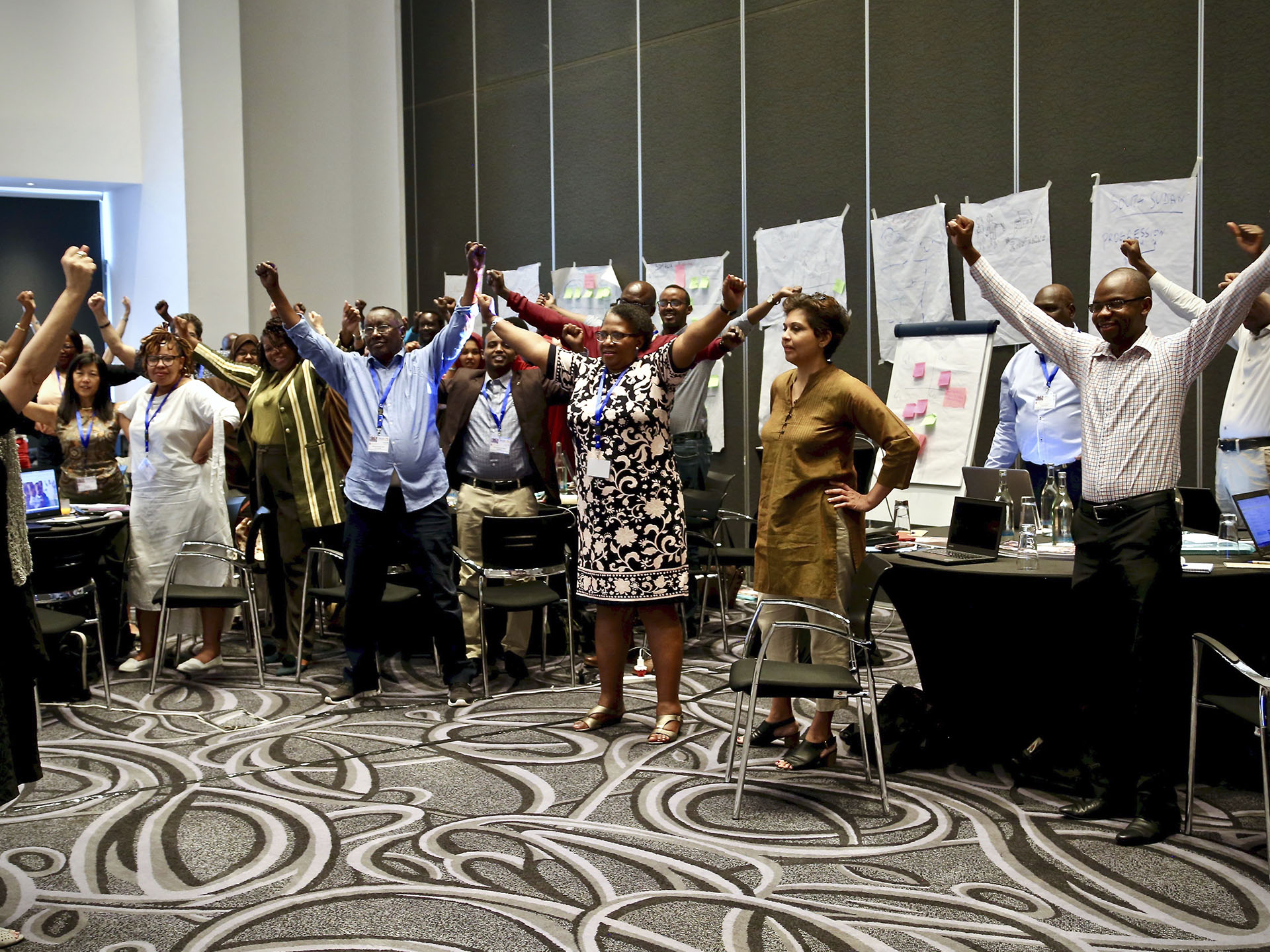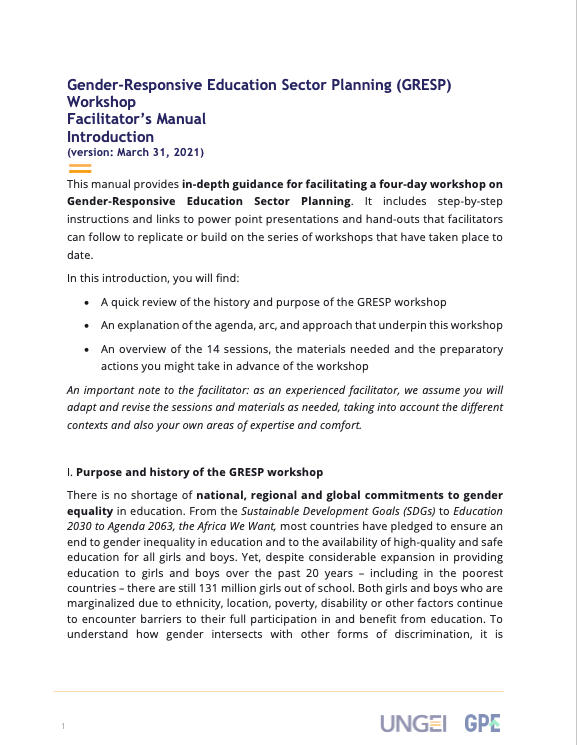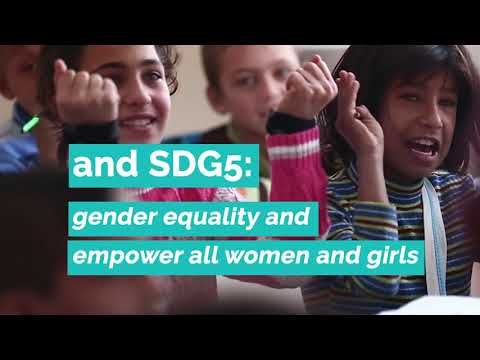Gender-responsive education systems by design
Putting gender equality at the heart of education
Embedding gender equality in the the DNA of national education systems
For education to fulfil its potential as an essential pathway to a gender-just world, both girls and boys must equally benefit from it. Yet in many countries, girls are the first to drop out of school, the first to be failed by the system. In others, it is boys who consistently underperform. To close the gender gap we need education systems that are gender-responsive by design. UNGEI is working with partner countries to do just that - putting gender equality at the heart of national education systems.
Join our community
Gender-responsive education sector planning
As a country’s blueprint for education reform, the education sector plan (ESP) presents a critical opportunity to ensure gender equality is at the heart of national education systems. Gender-responsive education sector planning (GRESP) is a vehicle for achieving this – identifying gender barriers within education systems and ensuring that strategies and policies are in place to address them through the ESP, along with the needed resources, oversight and accountability. This lays the foundations for system-wide change leading to more gender-equal outcomes in and through education.
“To ensure gender equality, education systems must act explicitly to eliminate gender bias and discrimination… Governments and partners need to put in place gender-sensitive policies, planning and learning environments…”
Advancing GRESP through national and regional workshops
In addition to the printed Guidance, national and regional GRESP workshops have been convened by UNGEI and the Global Partnership for Education (GPE) in collaboration with UNICEF, UNESCO IIEP, Plan International, FAWE and the African Union. Each workshop is an intense four-day programme designed to enhance participants’ understanding of gender analysis and capacity to apply the core principles of gender equality to their work in education sector planning.
Participants’ ability to identify and analyse gender barriers in education and find solutions to addressing them through policies and programmes is enhanced.
By reviewing their education sector plans, carrying out gender analysis and creating action plans to make them more gender-responsive, participants’ knowledge and skills are strengthened.
Participants’ commitment to use leadership opportunities to advance gender equality in education is increased and alliances and partnerships to support this are formed.
A peer-to-peer learning model enables participants and country delegations to share insights, experiences and learnings that can be adapted and applied to different national contexts.
GRESP workshops, 2017-2019
Africa
- Central African Republic
- Cameroon
- Côte d'Ivoire
- Guinea
- Eswatini
- Kenya
- Lesotho
- Liberia
- Malawi
- Mozambique
- Nigeria
- Sierra Leone
- Somalia (Federal Government, Puntland and Somaliland)
- South Sudan
- Tanzania (Mainland and Zanzibar)
- Togo
- Uganda
- Zambia
- Zimbabwe
South Asia
- Afghanistan
- Bangladesh
- Bhutan
- Maldives
- Nepal
- Pakistan (Baluchistan, Punjab and Sindh)

Gender-responsive education sector planning
A guidance, a workshop and now a movement
To date, UNGEI and partners have led national and regional workshops for education stakeholders in 28 countries across Africa and Asia. Over 200 delegates representing government ministries, civil society and development partners have been supported to develop action plans to better address gender-related issues through education sector plans, policies and budgets.

Gender-Responsive Education Sector Planning Workshop
Facilitator’s Manual
This manual provides in-depth guidance for facilitating a four-day workshop on Gender-Responsive Education Sector Planning. It includes step-by-step instructions and links to power point presentations and hand-outs that facilitators can follow to replicate or build on the series of workshops that have taken place to date.
Launched in 2019, the Gender at the Centre Initiative (GCI) was established by the G7 ministers of education and development under the leadership of the Government of France. Rooted in gender-responsive education sector planning, the Initiative supports ministries of education to develop and implement plans, policies and interventions for the purpose of advancing gender equality in education. The Initiative is led by the GCI Alliance comprising eight country partners in sub-Saharan Africa (Burkina Faso, Chad, Mali, Mauritania, Mozambique, Niger, Nigeria and Sierra Leone), multilateral organizations and civil society.


